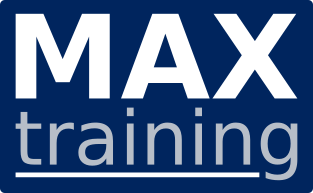Understanding Cisco Collaboration Foundations 1.0
Code: CLFNDUThe Understanding Cisco Collaboration Foundations (CLFNDU) 1.0 course gives you the skills and knowledge needed to administer and support a simple, single-site Cisco® Unified Communications Manager (CM) solution with Session Initiation Protocol (SIP) gateway. The course covers initial parameters, management of devices including phones and video endpoints, management of users, and management of media resources, as well as Cisco Unified Communications solutions maintenance and troubleshooting tools. In addition, you will learn the basics of SIP dial plans including connectivity to Public Switched Telephone Network (PSTN) services, and how to use class-of-service capabilities.
This course provides the fundamental knowledge needed to take CCNP® Collaboration certification courses. It also serves as entry-level training for newcomers to Cisco on-premise collaboration technologies.
Objectives
This course will help you:
- Administer a single-site Cisco Unified Communications Manager, handling daily tasks such as add, moves, changes and deletions of phones, video endpoints, and users.
- Configure Jabber devices and implement common endpoint features including call park, shared lines, pickup groups, and phone button templates.
- Introduce you to the SIP protocol, how calls are connected, and how media codes are determined.
- Introduce you to the capabilities and basic configuration of an SIP gateway for PSTN access.
- Introduce you to the dial plan elements used to route calls, and the class-of-service capabilities to control who can route calls where.
- Administer Cisco Unity Connection handling daily tasks such as add, moves, and changes and deletions of voicemail boxes and users.
- Administer maintenance tasks and use the troubleshooting tools available on Cisco Unified Communications Manager and Cisco Realtime Monitoring Tool.
After taking this course, you should be able to:
- Define collaboration and describe the main purpose of key devices in a Cisco collaboration on-premise, hybrid, and cloud deployment model.
- Configure and modify required parameters in Cisco Unified Communications Manager (CM) including service activation, enterprise parameters, CM groups, time settings, and device pool.
- Deploy and troubleshoot IP phones via auto registration and manual configuration within Cisco Unified CM.
- Describe the call setup and teardown process for a SIP device including codec negotiation using Session Description Protocol (SDP) and media channel setup.
- Manage Cisco Unified CM user accounts (local and via Lightweight Directory Access Protocol [LDAP]) including the role/group, service profile, UC service, and credential policy.
- Configure dial plan elements within a single site Cisco Unified CM deployment including Route Groups, Local Route Group, Route Lists, Route Patterns, Translation Patterns, Transforms, SIP Trunks, and SIP Route Patterns.
- Configure Class of Control on Cisco Unified CM to control which devices and lines have access to services.
- Configure Cisco Unified CM for Cisco Jabber and implement common endpoint features including call park, softkeys, shared lines, and pickup groups.
- Deploy a simple SIP dial plan on a Cisco Integrated Service Routers (ISR) gateway to enable access to the PSTN network.
- Manage Cisco UCM access to media resources available within Cisco UCM and Cisco ISR gateways.
- Describe tools for reporting and maintenance including Unified Reports, Cisco Real-Time Monitoring Tool (RTMT), Disaster Recovery System (DRS), and Call Detail Records (CDRs) within Cisco Unified CM.
- Describe additional considerations for deploying video endpoints in Cisco Unified CM.
- Describe the integration of Cisco Unity® with Cisco Unified CM and the default call handler.
Who Should attend?
- Students preparing to take the CCNP Collaboration certification
- Network administrators
- Network engineers
- Systems engineers
Prerequisites
This course is intended to be an entry-level course. There are no specific prerequisite Cisco courses; however, the following skills are required:
- Internet web browser usability knowledge and general computer usage
- Knowledge of Cisco Internetwork Operating System (Cisco IOS®) command line
Course Outline
- Exploring the Path to Collaboration
- Introducing Cisco Unified Communications Manager and Initial Parameters
- Exploring Endpoints and the Registration Process
- Exploring Codecs and Call Signaling
- Managing Users in Cisco Unified Communication Manager
- Describing a Basic Dial Plan
- Describing Class of Service
- Enabling Endpoints and Features
- Describing the Cisco ISR as a Voice Gateway
- Exploring Cisco Unified Communication Manager Media Resources
- Reporting and Maintenance
- Exploring Additional Requirements for Video Endpoints
- Describing Cisco Unity Connection
Price (ex. VAT)
Duration
Delivery methods
- Classroom
- On-site (at your location)
- Virtual (instructor online)
